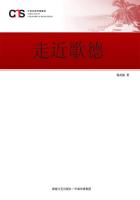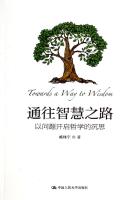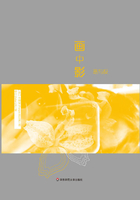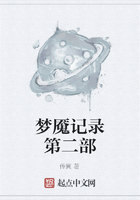Quantities have no contraries. In the case of definite quantities this is obvious; thus, there is nothing that is the contrary of "two cubits long" or of "three cubits long", or of a surface, or of any such quantities. A man might, indeed, argue that "much" was the contrary of "little", and "great" of "small". But these are not quantitative, but relative; things are not great or small absolutely, they are so called rather as the result of an act ofcomparison. For instance, a mountain is called small, a grain large, in virtue of the fact that the latter is greater than others of its kind, the former less. Thus there is a reference here to an external standard, for if the terms "great" and "small" were used absolutely, a mountain would never be called small or a grain large. Again, we say that there are many people in a village, and few in Athens, although those in the city are many times as numerous as those in the village: or we say that a house has many in it, and a theatre few, though those in the theatre far outnumber those in the house. The terms "two cubits long, "three cubits long," and so on indicate quantity, the terms "great" and "small" indicate relation, for they have reference to an external standard. It is, therefore, plain that these are to be classed as relative.
Again, whether we define them as quantitative or not, they have no contraries: for how can there be a contrary of an attribute which is not to be apprehended in or by itself, but only by reference to something external? Again, if "great" and "small" are contraries, it will come about that the same subject can admit contrary qualities at one and the same time, and that things will themselves be contrary to themselves. For it happens at times that the same thing is both small and great. For the same thing may be small in comparison with one thing, and great in comparison with another, so that the samething comes to be both small and great at one and the same time, andis of such a nature as to admit contrary qualities at one and the same moment. Yet it was agreed, when substance was being discussed, that nothing admits contrary qualities at one and the same moment. For though substance is capable of admitting contrary qualities, yet no one is at the same time both sick and healthy, nothing is at the same time both white and black. Nor is there anything which is qualified in contrary ways at one and the same time.
Moreover, if these were contraries, they would themselves be contrary to themselves. For if "great" is the contrary of "small", and the same thing is both great and small at the same time, then "small" or "great" is the contrary of itself. But this is impossible. The term "great", therefore, is not the contrary of the term "small", nor "much" of "little". And even though a man should call these terms not relative but quantitative, they would not have contraries.
It is in the case of space that quantity most plausibly appears to admit of a contrary. For men define the term "above" as the contrary of "below", when it is the region at the centre they mean by "below"; and this is so, because nothing is farther from the extremities of the universe than the region at the centre. Indeed, it seems that in defining contraries of every kind men have recourse to a spatial metaphor, for they say that those things are contrarieswhich, within the same class, are separated by the greatest possibledistance.
Quantity does not, it appears, admit of variation of degree. One thing cannot be two cubits long in a greater degree than another. Similarly with regard to number: what is "three" is not more truly three than what is "five" is five; nor is one set of three more truly three than another set. Again, one period of time is not said to be more truly time than another. Nor is there any other kind of quantity, of all that have been mentioned, with regard to which variation of degree can be predicated. The category of quantity, therefore, does not admit of variation of degree.
The most distinctive mark of quantity is that equality and inequality are predicated of it. Each of the aforesaid quantities is said to be equal or unequal. For instance, one solid is said to be equal or unequal to another; number, too, and time can have these terms applied to them, indeed can all those kinds of quantity that have been mentioned.
That which is not a quantity can by no means, it would seem, be termed equal or unequal to anything else. One particular disposition or one particular quality, such as whiteness, is by no means compared with another in terms of equality and inequality but rather in terms of similarity. Thus it is the distinctive mark of quantity that it can be called equal and unequal.
Those things are called relative, which, being either said to be of something else or related to something else, are explained by reference to that other thing. For instance, the word "superior" is explained by reference to something else, for it is superiority over something else that is meant. Similarly, the expression "double" has this external reference, for it is the double of something else that is meant. So it is with everything else of this kind. There are, moreover, other relatives, e.g. habit, disposition, perception, knowledge, and attitude. The significance of all these is explained by a reference to something else and in no other way. Thus, a habit is a habit of something, knowledge is knowledge of something, attitude is the attitude of something. So it is with all other relatives that have been mentioned. Those terms, then, are called relative, the nature of which is explained by reference to something else, the preposition "of or some other preposition being used to indicate the relation. Thus, one mountain is called great in comparison with son with another; for the mountain claims this attribute by comparison with something. Again, that which is called similar must be similar to something else, and all other such attributes have this external reference. It is to be noted that lying and standing and sitting areparticular attitudes, but attitude is itself a relative term. To lie, to stand, to be seated, are not themselves attitudes, but take their name from the aforesaid attitudes.















